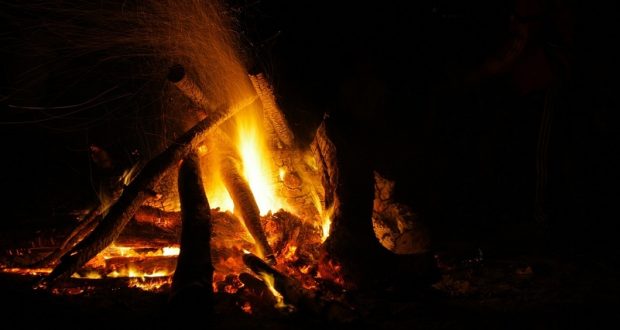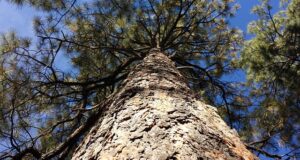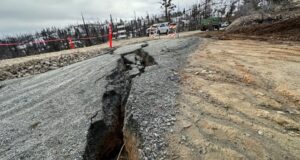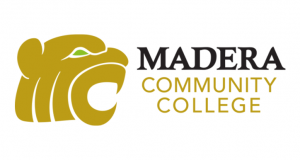CLOVIS – This year the Sierra National Forest (NF) will not be implementing campfire restrictions over the 4th of July holiday.
Although the wet winter contributed to an abundance of new grass and brush, criteria used for activation of campfire restrictions based on fire danger indices and fuel moisture conditions do not fall into the range that would restrict campfire use, say Forest officials.
“Guests to the forest need to be extra careful with any campfires by ensuring constant attendance, to use plenty of water to cool and extinguish the fire, spread the wood around in the fire ring while dousing with water, and feel for heat with the back of your hand to make sure the fire is completely out before departing for home,” says Forest Fire Chief John Goss.
The Sierra National Forest (NF) expects a very busy holiday weekend ahead. As all of our lakes are full to near capacity for the first time in many years, the opportunity for activities such as boating, swimming, camping, backpacking and picnicking in the great outdoors will be plentiful. Often these outings include the enjoyment of a campfire.
Forest Supervisor Dean Gould reminds visitors and campers that the use of fireworks of any kind is still prohibited on the Sierra NF.
“Fireworks and other pyrotechnic devices are prohibited on national forest lands year-round, regardless of weather conditions or holidays. Forest Service Fire Prevention and Law Enforcement patrols will check campsites and strictly enforce the prohibition on fireworks.”
The Sierra NF staff simply asks visitors to please be responsible in their enjoyment and use of a campfire, providing warmth in the cool evenings, roasting marshmallows, sitting around the fire to enjoy the company of family and friends.
In the Sierra NF, campfire permits are required for the use of campfires, charcoal fires, or portable gas stoves outside of a designated recreation area when there are no “fire restrictions” in place. These permits are free and are available at all Forest Service, BLM, or Cal Fire offices or online at www.preventwildfireca.org.
During certain times of the year, you may see debris piles burning in the area. However, when fire danger is high, residential debris burning of dead vegetation is unsafe. Homeowners should always check with their local Cal Fire station to obtain a burn permit, and check with their local air quality management agency before burning.
For more information on debris burning safety Cal Fire offers this educational fact sheet. Here are a few additional tips to follow, for you to recreate and enjoy your campfire on the Sierra NF responsibly:
· Prepare your site – Find a level spot away from overhanging branches, brush or dry grass. Keep away from the base of a hill, escaped campfires can travel up-hill very quickly.
· Beware of duff – Duff is the layer of decomposing material that lies on the forest floor between the pine needles and the bare dirt. Duff burns while bare dirt does not.
· Attend to your fire – Never leave a fire unattended, even for a few minutes or to take a nap. It only takes a moment for a fire to escape.
· If you find an unattended fire take action and extinguish the fire before it escapes.
· Drown the fire – Drown your campfire with at least five gallons of water ½ hour before you break camp. Use your shovel to separate the burning pieces of wood in the fire pit.
· Stir and Mix – Stir and mix water with ashes until the fire is completely out. Don’t try to bury the fire it can smolder for hours and possibly escape.
· Drown Charcoal Briquettes – Charcoal briquettes should be extinguished by placing them in a bucket of water stirred thoroughly, then poured into the fire pit.
· Check the Ashes – Using the back of your hand feel by pressing down slowly to see if there is still heat present. Additional water and stirring may be needed, make sure the fire is out before you leave the campsite. Walk around and check the area 50 feet from the fire pit to make sure embers or sparks did not escape.
· It Can Cost You – You can/will be held liable for the cost of suppression and damages caused by any wildfire that starts through negligence on your part.
· If you see smoke or fire that is unattended please contact Forest personnel by dialing 911, and reporting the incident.
For more information on campfire permits follow this link https://www.fs.usda.gov/detail/sierra/passes-permits/?cid=fsbdev7_018116.
To obtain your campfire permit on line follow this link http://www.preventwildfireca.org.
Know Before You Go: Become familiar with the area that you are visiting. Call the local Forest Service office near the area you will be visiting to check conditions, restrictions and closures.
Due to widespread tree mortality and a wetter than normal winter, some campgrounds are closed. Additionally, some roads and trails were damaged this winter and also remain closed.




